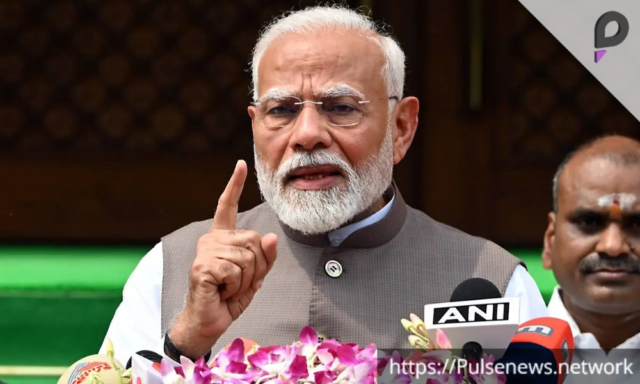New Delhi: Indian Prime Minister Narendra Modi’s Bharatiya Janata Party (BJP) has leveled serious accusations against the US State Department and alleged “deep state” elements within the United States, claiming they are attempting to destabilize India. This assertion has emerged alongside scrutiny of the Adani Group and allegations from investigative journalists, particularly opposition leader Rahul Gandhi. The BJP’s claims mark a notable point of contention in India’s relationship with the US, especially given the strengthening ties between New Delhi and Washington over the past two decades.
Background of the Allegations
The accusations from the BJP come after a series of articles published by the Organised Crime and Corruption Reporting Project (OCCRP). These articles focus on the Adani Group, which has faced scrutiny regarding its close ties to the Modi administration. The BJP contends that these reports, particularly those used by Gandhi’s Congress party, are part of a broader campaign to undermine the Prime Minister’s credibility and authority.
Recently, Gautam Adani, the group’s chairman, along with seven others, was indicted in the United States for allegedly participating in a $265 billion bribery scheme aimed at Indian officials. The Adani Group has categorically denied these allegations, labeling them as “baseless.” This controversy has intensified the political tensions in India, with the opposition pushing for accountability and transparency.
The Role of OCCRP and External Influences
The OCCRP has also been accused of highlighting the use of Israeli-made Pegasus spyware by state-sponsored hackers in India to target government critics. The Indian government has previously denied these allegations, asserting that the accusations are unfounded.
The BJP has drawn attention to claims that the OCCRP is funded by the US Agency for International Development (USAID) and other figures associated with the “deep state,” including billionaire financier and philanthropist George Soros. BJP spokesperson Sambit Patra stated at a recent media briefing that “50 percent of OCCRP’s funding comes directly from the US State Department.” He characterized the organization as a tool for advancing a deeper political agenda aimed at destabilizing India and undermining Modi’s government.
The Political Context
These accusations unfold against a backdrop of a robust Indo-US relationship, which has been characterized by cooperation in various sectors, including defense and trade. Despite occasional frictions, both nations have expressed a commitment to strengthening their ties. The BJP’s claims introduce a significant shift in this narrative, positioning the US as a potential adversary rather than an ally.
The allegations against Adani have also sparked significant political debate in India. Opposition lawmakers have demanded discussions in Parliament, leading to multiple suspensions of the session as they seek accountability regarding the Prime Minister’s relationship with Adani. This scrutiny highlights the broader issues of corruption and governance that have plagued Indian politics.
Reactions to the Accusations
Responses to the BJP’s claims have been mixed. The State Department, USAID, and George Soros have not commented directly on the allegations made by the BJP. Similarly, the Indian Ministry of External Affairs has not provided a response to the accusations against the US government. In contrast, OCCRP has defended its independence, asserting that while it receives some funding from the US government, there is no interference in its editorial processes.
OCCRP’s leadership has emphasized that it operates as an independent media outlet and is not affiliated with any political party. They stated, “The US government, while providing some funding to OCCRP, has no say in our editorial processes and no control over our reporting.” This defense highlights the ongoing debate about media independence and the role of external funding in journalistic integrity.
Conclusion
The BJP’s accusations against the US State Department represent a significant development in the political landscape of India. As the government faces mounting pressure over allegations related to the Adani Group and its relationship with the Prime Minister, the narrative surrounding foreign influence and domestic stability is becoming increasingly complex. With the backdrop of an evolving Indo-US relationship, these claims may have far-reaching implications for India’s political future and its international standing. The situation remains dynamic, and how these allegations are addressed will be crucial in shaping public perception and policy in the months ahead.











